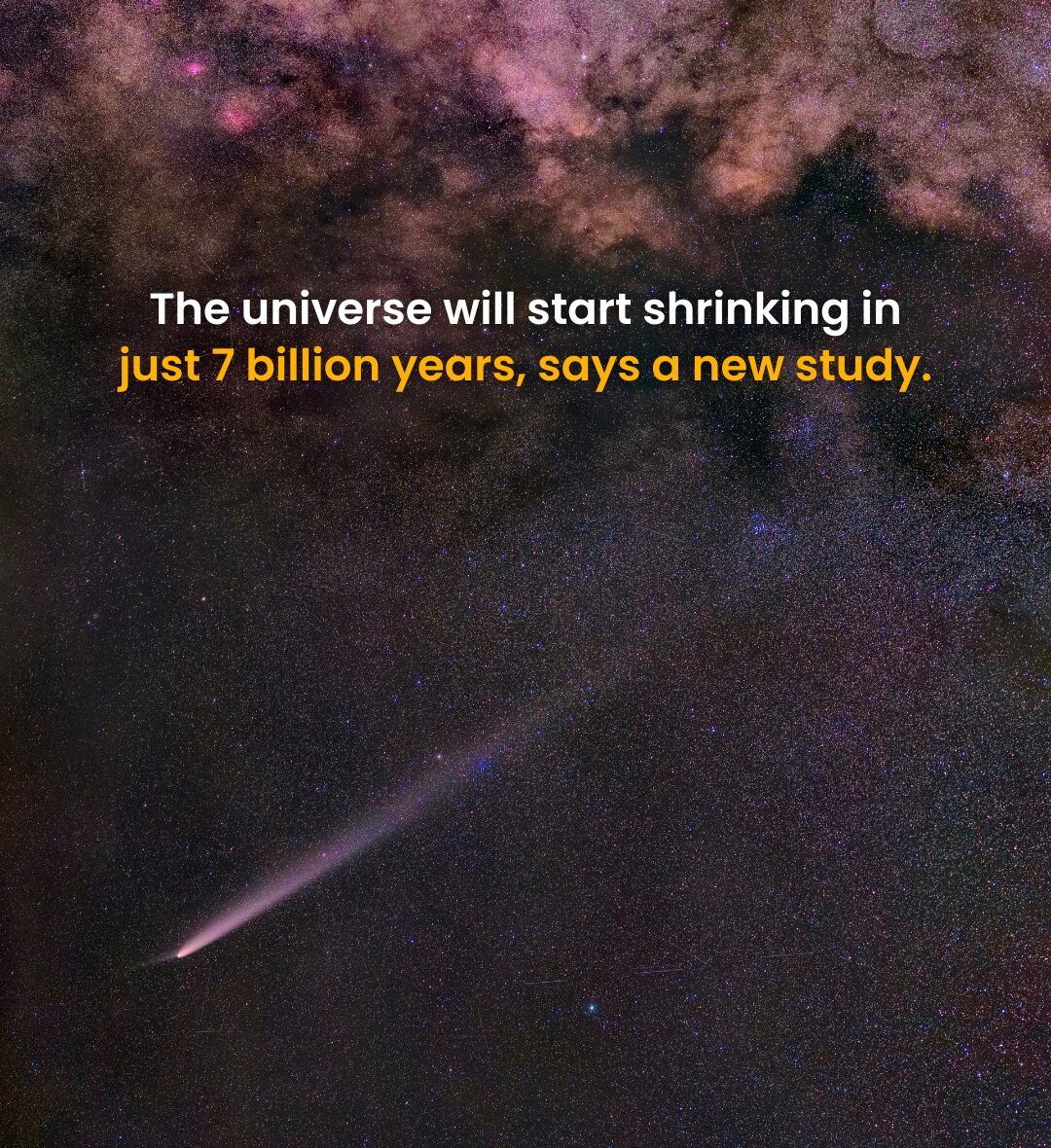Will The Universe Expand Forever
Will The Universe Expand Forever, Or Eventually Collapse Back Into Itself? A Provocative New Study Suggests We May Be Headed For A Big Crunch—And Sooner Than We Thought.
According To A Model Developed By Physicists From Cornell University And Shanghai Jiao Tong University, Our Universe Will Stop Expanding In About 7 Billion Years, Reaching A Maximum Size Roughly 69% Larger Than It Is Today. After That, It Will Begin To Contract, Culminating In A Complete Collapse—What Scientists Call The Big Crunch—In Around 33.3 Billion Years From Now.

This Theory Hinges On The Mysterious
This Theory Hinges On The Mysterious Force Known As Dark Energy, Which Currently Makes Up About 70% Of The Universe And Drives Its Expansion. While It’s Long Been Treated As A Constant, The Researchers Propose That Dark Energy Might Be Dynamic, Influenced By An Exotic Particle Called An Axion And A Hypothetical Negative Cosmological Constant. This New Twist Could Eventually Reverse The Cosmic Expansion, Like A Stretched Rubber Band Snapping Back.
The Dark Energy
Although The Idea Remains Speculative, It’s Grounded In Real Data From Projects Like The Dark Energy Survey And Desi, And It Presents A Testable Prediction. With Upcoming Observatories Like The Euclid Telescope And The Nancy Grace Roman Space Telescope, We May Soon Know If This Model Reflects Reality.
Even If True, It’s Nothing To Panic Over—The Sun Will Die And Earth May No Longer Exist By The Time Any Shrinking Begins. Still, This Marks The First Time Scientists Have Offered A Detailed Timeline For The Possible End Of Our Universe.
Hoang Nhan Lu Et Al., “The Lifespan Of Our Universe” , Arxiv (2025)
